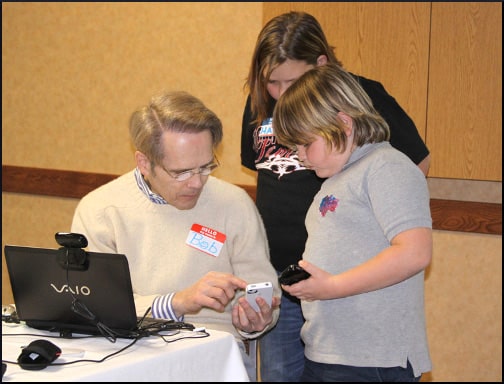
Plenty of experts are proponents of in-person interventions in health care settings. Generally, and up until recently, personal connection between therapist and patient has required a physical space where they could meet. Unfortunately, resources become more scarce while the cost of everything goes up, including premises, utilities, supplies, person-hours, legal assistance, compliance with government regulations, and numerous other factors.
Psychological problems related to food and eating are amenable to varying types and degrees of intervention, and it has been found that all obesity-reduction mentoring relationships do not need to be conducted in person, at all times. So it is important to discover the optimal proportions between one-on-one personal connection; a group approach; a technologically assisted relationship; and whatever other communication method might be available.
A mobile solution is a viable alternative, and W8Loss2Go focuses on endeavoring to “increase the amount of health provider-patient interaction outside of clinic based face-to-face-sessions in a cost-effective manner.”
Published by Wiley’s Pediatric Obesity, “An addiction model-based mobile health weight loss intervention in adolescents with obesity” is also available as a PDF file. It documents the work done at Children’s Hospital Los Angeles to compare the strong points of the tertiary care weight management program known as EMPOWER, with those of Dr. Pretlow’s WeightLoss2Go program. The authors are A. P. Vidmar , R. Pretlow, C. Borzutzky, C. P. Wee, D. S. Fox, C. Fink, and S. D. Mittelman.
Several members of that same team were credited for their entry last year in the 22nd Annual Poster Session hosted by the Saban Institute. The venue is interesting. The posters are displayed in a courtyard, where the attendees can walk around and talk to people, more like the ambiance of an art gallery. How different from the stuffy enclosed lectures that require a person to sit still for hours and pay attention to a screen — the kinds of passive “activities” that also happen to be discouraged in a field that hopes to decrease obesity.
Dr. Pretlow is already known to the reader, but what a great opportunity for a “roundup” of Dr. Pretlow’s own posts at Childhood Obesity News:
- “Obese Youth and Motivation“
- “The Weigh to Rock: A Nutritionist’s Guide Through Child Obesity“
- “Dr. Pretlow’s Advice to a British Mum“
- “Food Addiction and Childhood Obesity: Now What Do We Do?“
- “Ending Childhood Obesity Through Healthy Eating & Exercise?“
- “Childhood Obesity Conflicts of Interest“
- “Medical Science and Food Addiction“
- “Medical Science and Food Addiction — Part 2“
- “Using the Psychological Food Dependence-Addiction Lens“
- Bonus! Dr. Pretlow’s guest post at Fooducate: “Those %@#! Comfort Food Commercials“
Your responses and feedback are welcome!
Image by Dr. Pretlow

 FAQs and Media Requests:
FAQs and Media Requests: 











